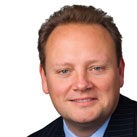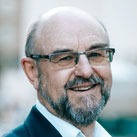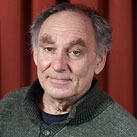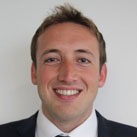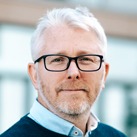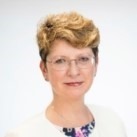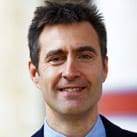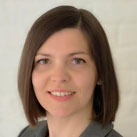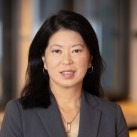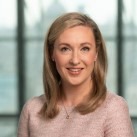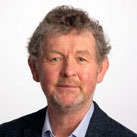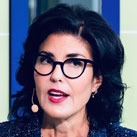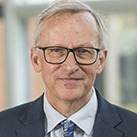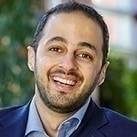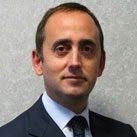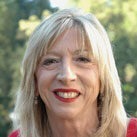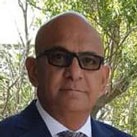14th Risk Summit (2023)

21 Jun 2023
09:00 -21:00
Times are shown in local time.
Open to: Specialists and business managers, including threat specialists, academics, policy-makers, practitioners and advisors

Cambridge Judge Business School
Trumpington St
Cambridge
CB2 1AG
United Kingdom
Just Transitions: Transforming Business Towards a Sustainable Future
The confluence of geopolitics, technology and movement toward a low carbon economy is creating widespread social transitions. Against that backdrop, corporations are taking on a new challenge: Where does social sustainability fit into the strategy and operations of a company, and what role do corporations have in making the transition both smooth and just?
Such concerns are vast, but even climate change – which is presented as the biggest systemic risk of this century – is only one aspect of environmental sustainability. Indeed it’s not new for systemic issues to force themselves on business boards, as has happened many times since the Great Financial Crisis of 2008.
The 14th Risk Summit of the Cambridge Centre for Risk Studies brings together leaders from different continents to discuss and debate their roles and visions for the balance between profitability and sustainability, and how social change links to systemic threats and opportunities.
We invite participation from a wide variety of specialists and business managers, including threat specialists, academics, policy-makers, practitioners and advisors to explore these topics together. The conference will be held at Cambridge Judge Business School with dinner at Christ’s College, University of Cambridge.
Registration closed
Registration for this event is closed. If you are interested to hear about upcoming events and other Centre-related news and resources, please join our mailing list.

Knowledge partner
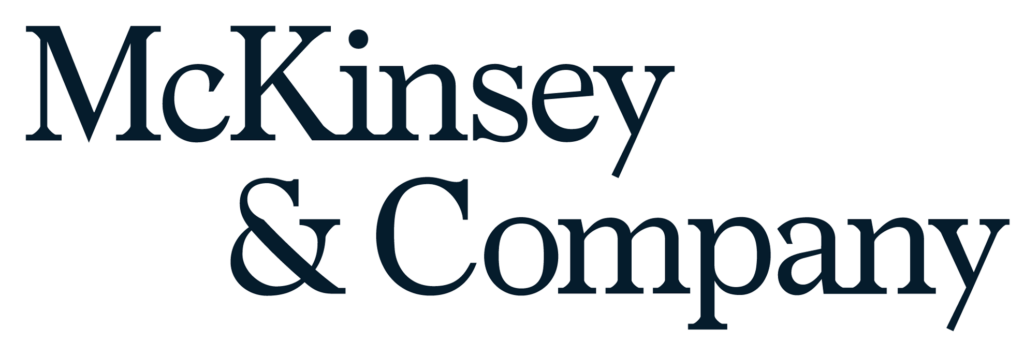
Meeting sponsor

Programme
- Keynotes and dinner speaker
- Welcome
- Plenary Session 1
- Plenary Session 2
- Plenary Session 3
- Plenary Session 4
- Plenary Session 5
- Cambridge-McKinsey Risk Prize Award and conclusion
Keynote talks
- Philip Coggan, author and former columnist at The Economist and FT with highlights from his recent book, “More: A History of the World Economy from the Iron Age to the Information Age”.
- Tina Fordham, Founder and Geopolitical Strategist of Fordham Global Foresight and first Chief Global Political Analyst on Wall Street [Citi]
Dinner speaker
- Professor Jon Crowcroft, Marconi Professor of Communications Systems, Computer Laboratory, University of Cambridge
Welcome
09:00 – 09:30
Registration coffee & tea
09:30 – 09:45
Welcome and Highlights from the Centre
Michelle Tuveson, Chairman & Executive Director, Cambridge Centre for Risk Studies
Plenary Session 1
An Economic History of Large-Scale Transitions
09:45 – 10:15
An Economic History of Large-Scale Transitions
Philip Coggan, Author and former columnist at The Economist and FT
Mankind’s escape from the Malthusian trap over the last 250 years owes much to fossil fuels. As a result, enormous challenges lie ahead if we are to create a sustainable economy, defined as net zero carbon emissions. Creating enough food for 8 billion people without the use of artificial fertilisers. Building the infrastructure we need with steel and concrete made in a way that is not reliant on fossil fuels. Replacing the myriad uses of plastics. Tackling these practical problems are paramount if we are to achieve the grandiose claims made by politicians and campaigners
10:15 – 11:00
Fireside Chat
Moderated by: Andrew Freeman, Risk Fellow, Cambridge Centre for Risk Studies
- Philip Coggan, Author and Former Columnist at The Economist and FT
- Marianne Petsinger, Senior Research Fellow in the Global Economy and Finance Programme, Chatham House
11:00 – 11:30
Coffee & tea break
Plenary Session 2
Competing Dimensions of Emerging Enterprise Risks
11:30 – 11:50
Competing Dimensions of Emerging Enterprise Risks
Dr Trevor Maynard, Director of Systemic Risk Research, Cambridge Centre for Risk Studies
11:50 – 12:15
Panel on Competing Dimensions of Emerging Enterprise Risks
Moderated by Dr Trevor Maynard, Director of Systemic Risk Research, Cambridge Centre for Risk Studies
- Rebekah Clement, Sustainability Director, Lloyd’s of London
- Professor Barbara J Sahakian, PhD, DSc, FBA, FMedSci, Emeritus Professor of Clinical Neuropsychology, University of Cambridge Department of Psychiatry
Plenary Session 3
Societal Transitions towards a Lower Carbon Economy
12:15 – 12:30
Forecasting How Decarbonization Will Impact the World Economy
- Dr Andrew Coburn, CEO, Risilience
- Jack Spencer, Senior Climate
12:30 – 13:00
Panel: Decarbonization from Supplier to Customer
Moderated by Dr Michelle Tuveson, Chairman & Executive Director, Cambridge Centre for Risk Studies
- Dr Andrew Coburn, CEO, Risilience
- Jason Channell, Head of Sustainable Finance, Citi’s Global Insights
- Dr Niyazi Taneri, Associate Professor of Operations and Technology Management at the University of Cambridge Judge Business School
- Jo Paisley, President, GARP Risk Institute
13:00 – 14:00
Lunch and group photo
Plenary Session 4
Geopolitical Dimensions of Global Transition
14:00 – 14:30
The New Geopolitical Risk Supercycle: How Business Can Prepare for the New Era
Tina Fordham, Founder and Geopolitical Strategist of Fordham Global Foresight and first Chief Global Political Analyst on Wall Street [Citi]
Geopolitical risks have accelerated markedly over the past year; sparking uncertainty, causing significant disruption to the business and investment environment and re-shaping the international system at the same time as the global economic and monetary policy backdrop has become more complex.
How long will the new geopolitical risk supercycle last? What are the key themes and signposts to watch, and how can investors and business leaders better-anticipate bumps in the road ahead? Join Tina Fordham and Michael Kitson for a deep dive into supercycles and macrotrends.
14:30 – 15:15
Fireside Chat: Geopolitical Dimensions and Macro Trends
Tina Fordham, Founder and Geopolitical Strategist of Fordham Global Foresight and first Chief Global Political Analyst on Wall Street [Citi]
Moderated by Michael Kitson, University Associate Professor in International Macroeconomics at the University of Cambridge Judge Business School
15:15 – 15:45
Coffee & tea break
Plenary Session 5
Industry and Energy in Transition
15:45 – 16:00
Fireside Chat: From Polycrisis to Transition Solutions
Rieaz Shaik, South Africa’s High Commissioner to Canada Moderated by Professor Daniel Ralph, Academic Director, CCRS
16:00 – 16:45
Panel Discussion: Industry and Energy in Transition
Moderated by Professor Daniel Ralph, Academic Director, CCRS
- Kamiar Mohaddes, Associate Professor in Economics & Policy, University of Cambridge Judge Business School
- Andrea Paulis, Executive VP – Group Treasurer / Head of EMEA Institutional Relations, CNH Industrial Group
- Rieaz Shaik, South Africa’s High Commissioner to Canada
- Sam Gibbons, Associate Partner, McKinsey & Company
Cambridge-McKinsey Risk Prize Award and Conclusion
16:45 – 17:00
Cambridge-McKinsey Risk Prize Award
Presented by Professor Daniel Ralph & Sam Gibbons
17:00 – 17:15
Concluding remarks
Dr Michelle Tuveson, Chairman & Executive Director, Cambridge Centre for Risk Studies
17:15 – 18:30
Networking reception
CJBS Reception Area
19:00 – 21:00
Evening Programme at Christ’s College, Cambridge
Including Summit Dinner Address by Professor Jon Crowcroft, Marconi Professor of Communications Systems, Computer Laboratory, University of Cambridge
Speakers
Jason Channell
Head of Sustainable Finance, Citi Global Insights
Jason Channell, Managing Director, is Head of Sustainable Finance within Citi’s Global Insights division, designed to provide thought leadership content and insight to the full breadth of Citi’s client base. Having joined Citi in 2011, Jason previously built and led Citi’s Global ESG team within Citi Research, taking it to #1 ranked around the world in the Institutional Investor Survey. He started his career at Fidelity Investments as a financial analyst, and prior to joining Citi in 2011, he built Goldman Sachs Alternative Energy & Cleantech coverage globally from 2005.
As well as his universal exposure to institutional investors around the globe over the last 30 years, he has advised countless CEO’s on sustainability & finance, from global mega-caps to VC start-ups, across every industry. In the public sector arena, his knowledge and experience have seen him advise national policymakers around the world, from the largest developed nations such as members of the US Senate Energy & Finance committees in Washington, through governments, Presidents & Prime Ministers, to Finance, Environment and Energy ministers of frontier and emerging markets. His insights and renown as a public speaker have led him to present to supranational organisations such as the IMF, the World Bank, the United Nations, continental development banks, many NGO’s, charities, and to institutions as diverse as NASA and the Vatican.
Jason’s numerous publications span the entire breadth of the United Nations Sustainable Development Goals, as well as technical aspects of sustainability such as ESG data, regulation, reporting and policy. As well as being used and cited widely by the public, private and financial sectors, his publications are on the required reading lists for many academic institutions, where he has delivered related guest lectures.
His reports looking at the economics, solutions and implications of climate change have featured prominently at recent UNFCCC COP meetings. Driven partly by the impending TNFD, this focus has recently broadened out to encompass nature and biodiversity, including the often overlooked, but critically important area the oceans play in the ‘twin crises’ of climate change and biodiversity, with the latest Oceans Report being launched in the UNFCCC pavilion at COP27 in Egypt with Johan Rockström and Sylvia Earle. Many of his publications are written in collaboration with world-renowned academic institutions such as Oxford and Cambridge Universities, and leading sustainable finance experts such as Mark Carney.
Jason features widely in the international media in print, on-line, and on TV. He holds a degree in Engineering Science and Management from the University of Durham.
Andrew Coburn
CEO and a founder member of Risilience
Andrew is CEO and a founder member of Risilience. He is responsible for the overall business success and direction of the company, and was the main architect behind the models and analytics that go into the Climate Risilience™ and Enterprise Risilience™ platforms.
Andrew has previously been one of the early-stage innovators of the catastrophe modelling industry for insurance, where he has created and brought numerous analytics products to market.
Andrew is one of the founder members of Cambridge Centre for Risk Studies at Judge Business School, University of Cambridge, where he maintains a position as Chief Scientist.
Jon Crowcroft
Marconi Professor of Communication Systems, University of Cambridge
I am the Marconi Professor of Communications Systems in the Computer Lab, at the University of Cambridge, and the Turing Inst. Almost exactly 100 years after Marconi’s “groundbreaking” first transatlantic wireless call, and I am a fellow of Wolfson College; two decades ago, I was a professor in the Department of Computer Science University College London.
I also am an honorary prof in stats there now. I graduated in Physics from Trinity College, Cambridge University in 1979. I got an MSc in Computing in 1981, and PhD in 1993 both from UCL (before that I even went to primary and 2ndary school once).
I’m a fellow of the Royal Society, the ACM, the British Computer Society, the IET the Royal Academy of Engineering and the IEEE. I’m a member of UCU and have been (or its equivalent) since 1979.
Technical advisory boards I am on include iKVA, Matrix, Dataswift, CognitionX, Ensemble, Foundation for Information Policy Research. Transition Lab, IMDEA Networks.
Sam Gibbons
Associate Partner, McKinsey
Sam Gibbons is an Associate Partner in McKinsey’s London office, and leads the firm’s work around financial risk management for corporates. Since joining McKinsey in 2021, Sam has helped several European energy companies navigate the turbulent environment driven by market volatility, regulatory change and energy transition.
Recent projects include:
- Enabling a German energy company to dramatically increase its investment in new renewable energy generation assets
- Developing derivative modelling capabilities for a European energy company’s renewable assets
- Analysing the implications of potential capital adequacy requirements for a UK renewable energy company
- Working with a multinational corporate banking group to support its energy clients in addressing climate risk and reducing carbon emissions
Prior to joining McKinsey, Sam was an Investment Banker for 12 year, mostly at Barclays, where he developed their Strategic Debt and Risk Advisory capabilities.
Sam holds a Masters in Mathematics from St John’s College, Cambridge and a Masters in Financial Mathematics from the University of Edinburgh.
Trevor Maynard
Director of Systemic Risk at the Cambridge Centre for Risk Studies
Dr Trevor Maynard is the Director of Systemic Risk at the Cambridge Centre for Risk Studies located at the Judge Business School.
He qualified as an actuary and holds a PhD in Statistics from the LSE and a Masters in Pure Mathematics from the University of Warwick.
His work has involved risk modelling in various guises from Pensions and Life Assurance to general insurance, working for firms such as Lloyd’s of London and Mercer. Whilst at Lloyd’s his team produced risk reports on subjects including Pandemics, Climate Change, Deep tail Marine disasters, Nano Technology, Geopolitics, AI, Robotics and IoT working with many think tanks, universities and specialist risk modelling firms.
Additionally he advises insurtech firms on risk and data science.
Jo Paisley
Co-President, GARP Risk Institute
Jo Paisley is Co-President of the GARP Risk Institute (GRI), the thought leadership arm of the Global Association of Risk Professionals (GARP). Set up in early 2018, the Institute works across all risk disciplines, with Jo’s focus to date on climate risk management and scenario analysis, stress testing and operational resilience. Her career began at the Bank of England where she worked in a variety of roles, across macroeconomics, statistics, supervision and risk. Her last role was as a Director of the Supervisory Risk Specialists Division within the Prudential Regulation Authority, where she was heavily involved in the design and execution of the UK’s first concurrent stress test in 2014. She left the bank in 2015 and joined HSBC as their Global Head of Stress Testing. She has also worked as an independent stress testing consultant, advising firms on how to get the most value out of stress testing.
Daniel Ralph
Professor of Operations Research at Cambridge Judge Business School
Academic Director, Centre for Risk Studies
Professor Daniel Ralph is a Founder and Academic Director of the Centre for Risk Studies, Professor of Operations Research at the University of Cambridge Judge Business School, and a Fellow of Churchill College.
Daniel’s research interests include identification and management of systemic risk, risk aversion in investment, economic equilibria models and optimisation methods. Management stress test, via selection and construction of catastrophe scenarios, is one focus of his work in the Centre for Risk Studies.
Another is the role and expression of risk management within organisations. Daniel engages across scientific and social science academia, a variety of commercial and industrial sectors, and government policy making. He was Editor-in-Chief of Mathematical Programming (Series B) from 2007-2013.
Marianne Schneider-Petsinger
Senior Research Fellow, Global Economy and Finance Programme, Chatham House
Marianne Schneider-Petsinger is a senior research fellow in the Global Economy and Finance Programme at Chatham House, responsible for analysis at the nexus of political and economic issues, and project lead for the Global Trade Policy Forum.
She is also a non-resident fellow at the American Institute for Contemporary German Studies (AICGS), which is affiliated with Johns Hopkins University and located in Washington, DC.
Before joining Chatham House in 2016 in the US and the Americas Programme, Marianne managed the Transatlantic Consumer Dialogue, an international membership body representing consumer organizations in the EU and the US.
She also worked for a think-tank on transatlantic affairs in the US, and for the Thuringian Ministry of Economic Affairs in Germany.
Marianne is a regular speaker and panellist at events and conferences, as well as a guest commentator on broadcast news. She has given oral evidence to a number of Select Committees of the British House of Commons.
Marianne holds a BA in international affairs and economics from the University of Maine. She completed her master’s degree, focusing on international trade and finance, at the Fletcher School of Law and Diplomacy at Tufts University and the John F. Kennedy School of Government at Harvard University.
Jack Spencer
Senior Climate Risk Modeller at Risilience
Jack is a senior climate risk modeller at Risilience. He is responsible for enhancing and expanding Risilience’s modelling of climate risk scenarios and transition risks. This has recently included the development of a global macroeconomic model of decarbonisation pathways.
Prior to joining Risilience, Jack supported various modelling efforts of Cambridge Econometrics – an economic research consultancy. Themes typically included: the green economic transition (protection of critical ecosystems; decarbonisation of economic activities), trade and global value chains, the social impact of macroeconomic crises, macroeconomic forecasting, emerging technologies and innovation and transport policy.
Jack is an economist by training (Economics MSc – Edinburgh University).
Michelle Tuveson
Chairman & Executive Director, Centre for Risk Studies
Michelle Tuveson is a Founder and Executive Director at the Cambridge Centre for Risk Studies hosted at the University of Cambridge Judge Business School.
Her responsibilities include the overall executive leadership at the Centre. This includes developing partnership relationships with corporations, governments, and other academic centres.
Rebekah Clement
Sustainability Director, Lloyd's
Rebekah joined Lloyd’s in October, 2015 and was appointed Lloyd’s Sustainability Director in September of 2021. Rebekah is responsible for developing and delivering Lloyd’s ESG strategy. This includes leading Lloyd’s action leadership platform, Futureset, together with its strategic sustainability initiatives. This includes His Royal Highness, Sustainable Markets Initiative Insurance Task Force, comprised of CEOs from a number of the largest and most influential global insurance and broker firms who are working to drive progress as a group and accelerate the pace of industry transitions towards a more resilient and sustainable future. Rebekah sits on the University of Cambridge Centre for Risk Studies Advisory Board, together with the ClimateWise Managing Committee.
Before joining Lloyd’s, she led the global media and PR for London tourism, as part of the GLA subsidiary London & Partners from 2013-2015. Prior to this, Rebekah held a number of senior advisory roles in the New Zealand Parliament and central government, most recently as the Press Secretary for two successive Governors-General of New Zealand from 2009-2013. Rebekah holds an Executive MBA from Cranfield University, together with a Bachelor of Communications from Massey University of New Zealand, is a Chartered Fellow of the Chartered Management Institute, and sits on the University of Cambridge Centre for Risk Studies Advisory Board.
Philip Coggan
Author and former columnist at The Economist and FT
Philip Coggan is a British business journalist and author. At the Economist, he wrote the weekly Bartleby column on work and management until August 2021. He served as the writer of the Buttonwood column on finance before John O’Sullivan took over in 2018. Prior to joining The Economist, Coggan worked for the Financial Times for 20 years, from 1986 to 2006. He was educated at Sidney Sussex College, Cambridge. In 2008, Coggan was named “Senior Financial Journalist of the Year” by the Wincott Foundation and in 2009 he was voted Best “Communicator” at the Business Journalist of the Year Awards. The CFA Society of the United Kingdom named him “Journalist of the Year” in 2016.
Tina Fordham
Geopolitical Strategist & Founder, Fordham Global Foresight
Tina Fordham is a trailblazer in the field of global political risk, with 25 years’ experience advising senior leaders–from prime ministers and generals to boards, institutional investors and the United Nations—about the implications of geopolitical risks and social change. Previously the first chief global political analyst on Wall Street (Citi) and the first head of global political risk at Eurasia Group, she founded Fordham Global Foresight in 2022. A graduate of Columbia University’s School of International and Public Affairs and member of SIPA’s International Advisory Board, Tina is a frequent guest on Bloomberg, CNN and CNBC, and a contributor on Leadership Strategy at Forbes. She is based in London.
Michael Kitson
Associate Professor in International Macroeconomics, Cambridge Judge Business School
I am an economist and my research interests include economic policy, regional economics, corporate performance and innovation (further information is here). My research is primarily concerned with new developments in innovation policy and analysing knowledge exchange between academics and the private, public and third sectors. My current research project is concerned with analysing business-university relationships in the UK. You can find further information about this project on the Centre for Business Research (CBR) website here.
I am University Associate Professor in International Macroeconomics at the Judge Business School, Cambridge; Director, The Cambridge MBA; Assistant Director of the Centre for Business Research, Cambridge; and Fellow of St Catharine’s College, Cambridge.
Kamiar Mohaddes
Associate Professor in Economics and Policy
PhD (University of Cambridge)
Andrea Paulis
Executive VP – Group Treasurer / Head of EMEA Institutional Relations, CNH Industrial Group
Andrea Paulis is responsible for CNH Industrial global Corporate Treasury.
Starting from January 2022, he added responsibilities as Head of the Group Institutional Relations and Sustainable Development Initiatives in the EMEA Region.
He joined the CNHI Group since its inception in 2013.
Prior to his current position, Andrea has been the CNH Global Group Treasurer from 2011 to 2013, Senior V.P. Financial Markets in Fiat Group, Italy, from 2007 to 2011 and has held several other financial and treasury positions within FIAT Group since 1996, both in the United States and in various European Countries.
Andrea earned a Masters in Financial Markets from SAA School of Management, Turin, Italy, and a Bachelors degree in Business and Economics from Università Cattolica, Milan, Italy.
Barbara Sahakian
Emeritus Professor of Clinical Neuropsychology, University of Cambridge Department of Psychiatry
PhD, DSc, FBA, FMedSci
Professor Barbara Sahakian retired in 2022 and has received Emeritus status with the University of Cambridge. She continues working with CLIC as a Senior Scientific Advisor.
Prof Barbara Sahakian is an Emeritus Professor of Clinical Neuropsychology at the Department of Psychiatry, University of Cambridge School of Clinical Medicine, an Honorary Consultant Clinic Psychologist at Addenbrooke’s Hospital, a Fellow of the British Academy and the Academy of Medical Sciences, a Fellow of Clare Hall Cambridge, and a Bye-Fellow of Christ’s College Cambridge.
She is particularly interested in the training of 21st century neuroscientists in neuroethics and in the engagement of the public in science. She is co-inventor of the CANTAB computerised neuropsychological tests, which are in use world-wide. She is probably best known for her research work on cognition and depression, cognitive enhancement using pharmacological treatments, neuroethics and early detection of Alzheimer’s disease.
Her current programme of research, funded by the Wellcome Trust and Medical Research Council, investigates the neurochemical modulation of impulsive and compulsive behaviour in neuropsychiatric disorders, such as unipolar and bipolar depression and attention deficit hyperactivity disorder.
Rieaz Shaik
South Africa’s High Commissioner to Canada
Rieaz is popularly known as ‘Moe’ and has been appointed, 01 February 2021, by President Cyril Ramaphosa as South Africa’s High Commissioner to Canada. He presented his credentials to the Governor General of Canada on 27 April 2022.
Prior to taking up his diplomatic posting Moe Shaik was a private sector consultant that specialized in corporate reputation risk management. He is also a thought-leader in infrastructure financing on the African Continent, especially in the Energy, Transport, ICT and Water sectors. He has presented on these issues at various international fora, conferences and round-table discussions.
Mr Shaik was an anti-apartheid activist and a former student leader. He was an active member of the ANC underground that specialized in intelligence and intelligence policy. He was a negotiator in the Convention for a Democratic South Africa (CODESA), the Multi-Party Talks and played a significant role in shaping the intelligence dispensation for democratic South Africa.
Mr. Shaik held several senior management positions both in the private and public sector. His various positions included that of CEO at CorpAfrica (Pty) limited, Deputy Intelligence Coordinator, South Africa’s Consul General to Germany, South Africa’s Ambassador to the Democratic Republic of Algeria, Special Advisor to the Minister of Foreign Affairs, the Head of the SA Secret Services (South Africa’s foreign intelligence service), and Group Executive of the Development Bank of Southern Africa.
All of the above positions has given Mr Shaik deep knowledge on government policy, geopolitical issues, the political and working environments of African governments and their institutions. He holds insightful reflections on politics, business development in Africa, the role of the private sector in infrastructure delivery, the importance of relationship building, strategy formulation and prudent risk management.
Mr. Shaik holds a Bachelor of Science (Computer Science) degree, a Bachelor of Optometry degree and a Masters degree in Optometry (Cum Laude), all from the University of Durban Westville. He has also completed the Advanced Management Programme (AMP) at the Harvard Business School and the Introduction to Neuroscience coaching, an online course from the University of Pretoria.
He is the author of his recently published memoir entitled, The ANC Spy Bible.
Niyazi Taneri
Associate Professor of Operations and Technology Management at The University of Cambridge
Dr Niyazi Taneri is an Associate Professor of Operations and Technology Management at The University of Cambridge. His research and corporate engagements are related to product and business model innovation, incentive design, supply chains, manufacturing, service operations, technology, and their impacts on societal outcomes.
He uses data analytics and game-theoretic methods, has published in leading Management Science and Operations journals, and serves on the editorial board of Service Science. He has taught executives from and advised companies such as Astra, Citi, DHL, Four Seasons, HP, Shell, and Merck.
Prior to Cambridge, Niyazi worked at National University of Singapore, Singapore University of Technology & Design, and Tesco. He has held visiting positions at Massachusetts Institute of Technology and INSEAD. He has received numerous awards and scholarships including a Best PhD Dissertation Award and scholarships from the Fulbright Commission, British Chevening, and Cambridge Commonwealth Trust.


